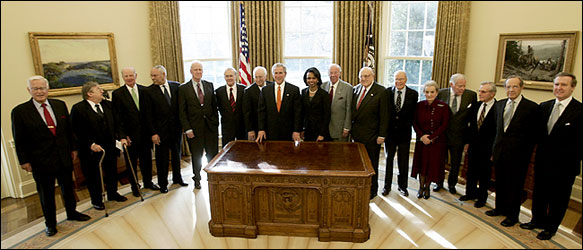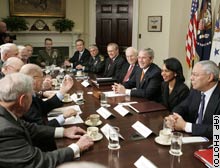This I Believe
My wife and I recently saw the play Trying at the Walnut Street Theater. Now, we have season tickets to two theaters in Philadelphia, the Wilma which is avant-garde, thought-provoking, and intellectual. The Walnut, on the other hand, while the productions are often excellent, tends to produce a lot of light-weight chestnuts: Finian’s Rainbow, Beauty and the Beast, Cats, and a plethora of Neil Simon. Given that, I wasn’t expecting the impact of Trying, which deals with the last year of Judge Francis Biddle’s life, seen through the eyes of his young secretary. For those who don’t know (as I didn’t), Francis Biddle was the Chief United States Judge at the Nuremberg trials, after serving on the US Court of Appeals, as Solictor General and then Attorney General of the United States, and as chairman of the National Labor Relations Board. under Roosevelt and Truman. A member of a historic Philadelphia patrician family, he was rich, eloquent, and liberal.
The following quote was from Edward R. Murrow’s “This I believe” radio series.
It speaks to my condition.
THIS I BELIEVE I believe in the value of the individual human being – his integrity, his need for diversity, even his chance at happiness. Some men and women have enjoyed creative and satisfactory lives; but they have been few compared to the average lot of the millions who have been the victims of poverty, disease and oppression. I believe that such a disproportion is not necessary. A normally decent way of living for all men is not beyond the range of the possible.
In the thousands of years of our tortured history we have learned many things – but not yet how to live together. It has been said that human nature does not change, that you cannot improve people by passing laws. But surely change runs at the root of all life; and if laws do not alter man, laws can modify some of those conditions which make it hard for men to live peacefully, perhaps even joyfully together.
Laws, after all, are but the expression of the common purpose. They implement and articulate the needs and aspirations of the community, changing as the community changes.
In the beginning of our history we declared to a skeptical world the proposition that all men are created equal, with the inalienable rights of life, liberty and the pursuit of happiness. Gradually we have come to understand and to insist that these rights mean more than a magnificent declaration; and that our government, instituted among men, must derive its continuing reality by promoting the general welfare and securing the blessings of liberty. Today eternal vigilance demands not only that we prevent our instrument, the State, from trampling on our liberties, but that we insist that it shall protect and secure them.
I too believe that Liberty is an end in itself; and that, as Sophocles once said, “The secret of happiness is freedom, and the secret of freedom is a brave heart.”
But now our freedom – our chance to live life as we see it, to choose it and to enjoy it – is threatened. I do not believe that the totalitarian menace to what we like to call the American way of life – which is deeply rooted in European culture, European democracy, and European religion – I do not believe that this external brutality and imperialism is the only menace to that kind of living. Our weakness in our fundamental beliefs; and particularly in our faith in the individual human being. This frustrating doubt under the pressure of fear leads us to all the dark and violent absurdities and injustices that have characterized these last few years – the loyalty oaths and loyalty tests; the investigations of the way certain Americans choose to think; the hunting out on the college campuses of teacher who will not accept the orthodox point of view of the multitude; the suspicion, the nervous hysteria.
I still believe in the American traditions that Thomas Jefferson so nobly expressed a hundred and fifty years ago – the traditional American decencies – free speech and free press, due process for all persons before the law, equality of opportunity.
But this is not all of our American Faith. Tolerance, which is at the root of it, is akin to the scientific spirit, rational, not without skepticism, experimental, and above all, open-minded. We must keep open the travel to the heart. But we must never close the approaches to the mind.”


